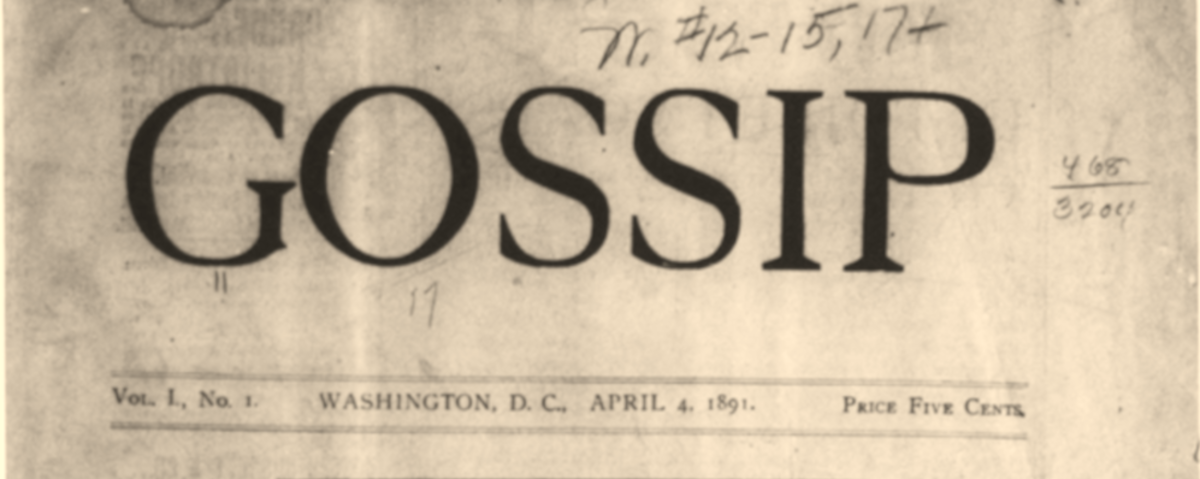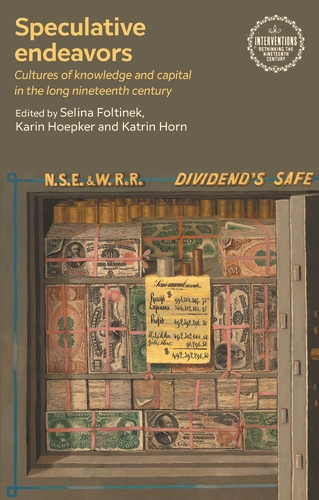ArchivalGossip – A Scholarly Take on Nineteenth-Century Tattle Tales
2019-2023
ArchivalGossip.com is the digital outlet of the American Studies research project “Economy and Epistemology of Gossip in Nineteenth-Century US American Culture” which was funded by the German Research Council from 2019 to 2023. The digital project consists of a blog (WordPress) – including information on the team, on sources, and on publications and important steps in the work ‘behind the scenes – and a database (Omeka). The latter collects letters, diaries, cartoons, photographs and paintings, auto/biographies, and newspaper articles (from a large number of mostly US American archives and online databases) as well as information on people and events which illustrate the increasingly public relevance of gossip. To further showcase gossip’s reliance on and promotion of networks, the database enables users to trace relations between people (e. g. “married to,” “friends with”) and references (e. g. “addressed to,” “mentions,” “critical of,” “implies personal knowledge of”) in intuitive relationship-visualizations.
The database and its diverse plugins furthermore facilitate work with different media formats and tracing relational agency of female actors in diverse ways: chronologically (timelines: Neatline Time), geospatially (Geolocation mapping tool), and according to research questions (exhibits, tags). The database consists of two major collections:
Digital Collections
- Cushmania: Actress Charlotte Cushman serves a crucial case study for thinking through women’s participation in the public sphere and the role of gossip (as both source of information and object of study in its own right). Her same-sex relationships as well as her gender-bending performances and attitude in daily life required Cushman to manage her reputation carefully. The selected corpus of archival documents comprises both publicly circulated texts as well as private life writing.
- Gossip Columns and Columnists: The collection stores items related to the question of how gossip was talked about, referenced, and used in nineteenth-century periodicals. It showcases letters, diaries, articles, auto/biographical accounts of relevant journalists, such as Anne Hampton Brewster or Grace Greenwood, as well as exemplary gossip columns and articles.
Within each collection, different collection highlight specific areas of interest, such as the exhibit “Gossip in Black Periodicals,” which introduces users to different columns of gossip, social news, and travel reports which would be found across a wide spectrum of Black periodicals in the 1870s to 1890s. Complementing political editorials, international news, and advice features, gossip and its equivalents allowed editors and journalists to entertain, educate, and inspire their readers by sharing achievements and missteps, often presented with personal commentary, humor, or moral judgement – as would be typical of oral gossip shared
For more information, go to the ARCHIVAL GOSSIP homepage: https://archivalgossip.com
ArchivalGossip.com
ArchivalGossip.com offers
- important contexts to discuss the history of sexuality by letting nineteenth-century women describe their relationships in their own words, and by learning from private communication what kind of “transgression” was worth talking about at what time;
- access to primary sources and their transcriptions about women’s increased public role and how they carefully managed their public reputation to allow them to balance domestic ideals and professional engagements;
- biographical information of historical female figures;
- network visualizations and narratives;
- information about gossip as a source and as a mode of inquiry for historical questions, which counters the focus on scholarly, legal, and otherwise ‘official’ (=straight, white, male) epistemological forms in most history of knowledge scholarship;
- voices of female (letter) writers by providing digital access to their work, and by facilitating scalable reading through a combination of distant and close reading.
Contact
Lehrstuhl für Gender Studies


